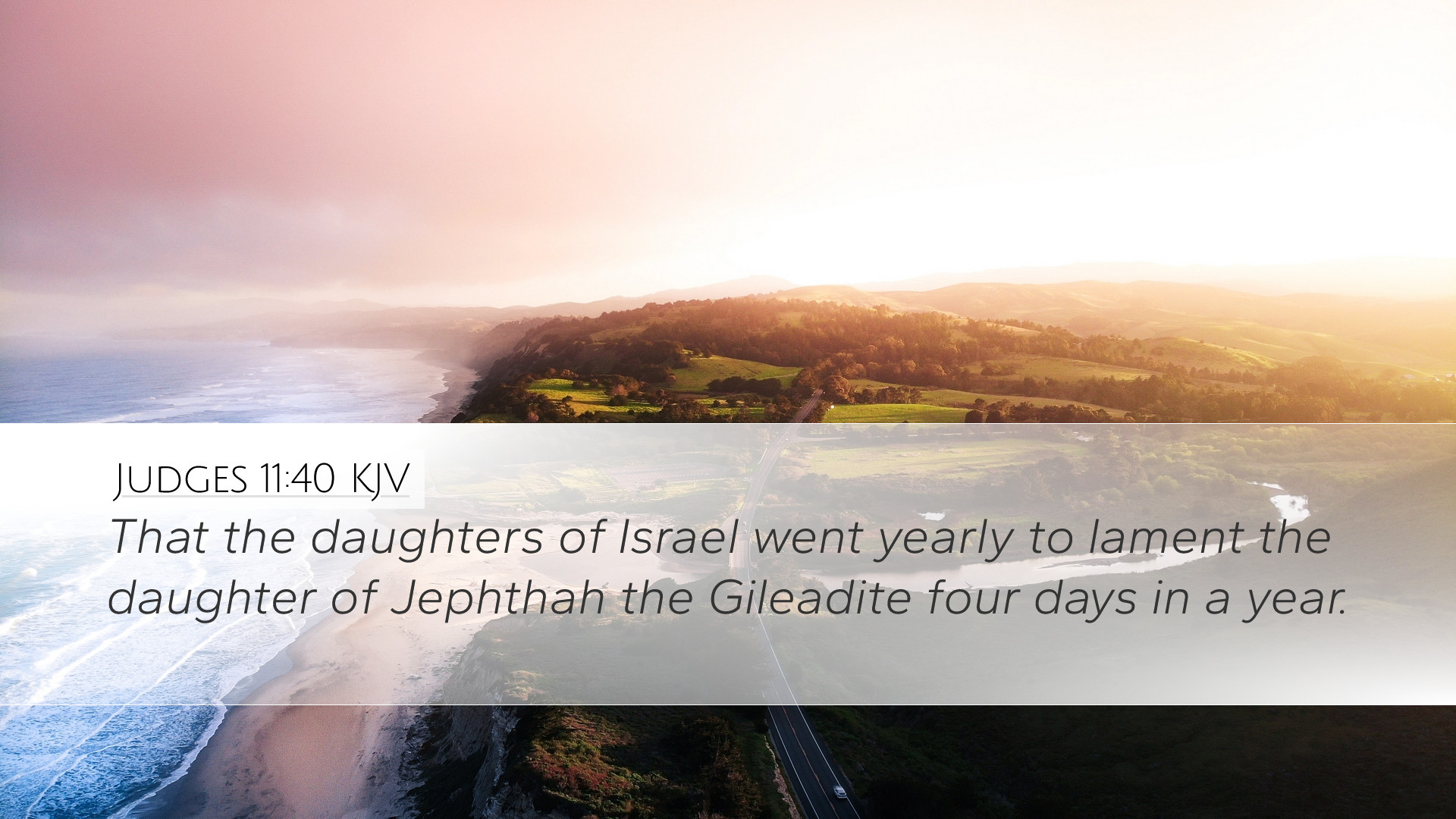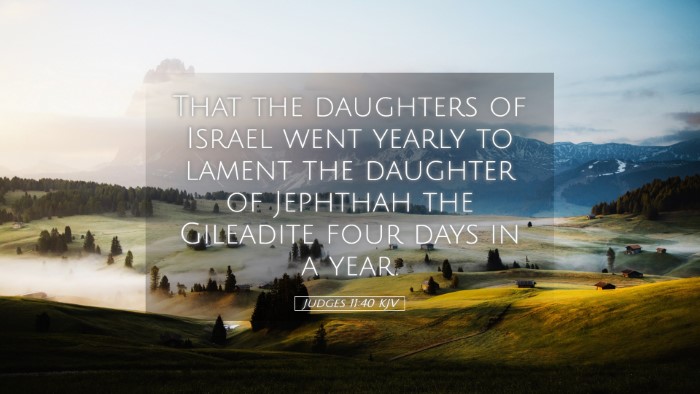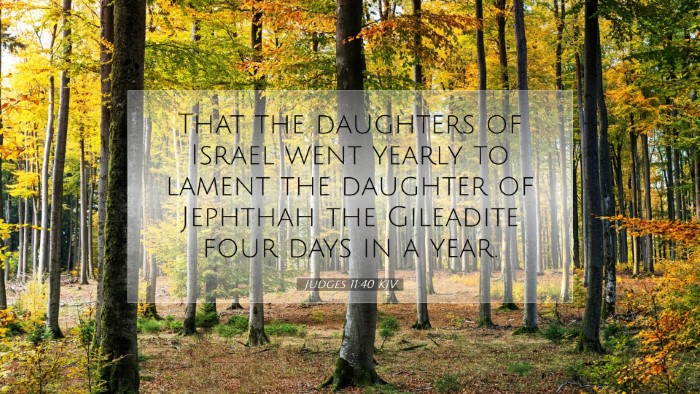Commentary on Judges 11:40
Judges 11:40 reads: "That the daughters of Israel went yearly to lament the daughter of Jephthah the Gileadite four days in a year."
Introduction
This verse serves as a conclusion to the narrative surrounding Jephthah, a judge of Israel whose vow led to profound consequences. It highlights the cultural practices that arose due to his tragic story and invites reflection on themes of sacrifice, reverence, and the implications of vows made to God. In this commentary, insights from various public domain scholars will be drawn together to elucidate the deeper meanings within this verse.
Understanding Jephthah’s Vow
Matthew Henry notes the gravity of Jephthah's vow, which was made in a moment of desperation as he sought divine assurance for victory over the Ammonites. He describes how, in his fervor, Jephthah promised to offer whatever came out of his house as a burnt offering upon his return. This impulsiveness serves as a warning about the nature of vows made during intense emotional states.
Albert Barnes emphasizes that Jephthah's outcome illustrates the necessity of wisdom in our promises to God. The tragedy mirrors the unintended consequences of hasty promises and the crisis they can create in our lives. The lamentation initiated by Jephthah’s daughter acknowledges the sorrow that can result from misunderstood or misapplied devotions.
The Custom of Lamentation
This annual lamentation serves as a cultural institution that reflects the nation’s grief. Adam Clarke comments on the ongoing remembrance of Jephthah's daughter as a societal response to her sacrifice. The daughters of Israel coming together each year signifies a collective mourning that serves to honor her memory and reminds the community of the gravity of Jephthah’s decision.
As Henry notes, the tradition also serves as an important reminder for future generations about the significance of vows and the dire outcomes they can sometimes yield. It is an act of commemoration that instills lessons about dedication, duty, and the fearsomeness of promises to God.
Theological Implications
Judges 11:40 raises crucial theological inquiries about the nature of sacrifice and the relationship between humanity and the divine. Barnes reflects on the necessary gravity with which believers should approach their commitments to God. This verse prompts pastors and theologians alike to consider the implications of their vows and the responsibility to follow through on their commitments.
Clarke elaborates on the sociocultural aspect, discussing how public mourning can invoke a shared sense of loss and reflection within a community. It encourages not just individual consideration of vows but also collective engagement in the discourse surrounding the consequences of those commitments.
Lessons for the Contemporary Church
This annual lamentation speaks volumes to the contemporary church. Henry implies the necessity of reflection and remembrance in the life of faith. Modern congregations must grapple with their own understandings of sacrifice and the significance of their commitments to God. This verse can serve as a catalyst for discussions about the seriousness of faith-related decisions and the importance of community support in these contexts.
- Commitment: Just as Jephthah’s vow was binding and definitive, today’s believers are reminded to approach their spiritual commitments with seriousness and consideration.
- Community: The collective grieving and remembrance exercised by the daughters of Israel illustrates the essential nature of community in faith. Bonds formed through shared experiences bring people closer to God and one another.
- Reflection: Lamentation offers an opportunity for reflection on past actions and their outcomes, inviting believers to consider how their lives align with their spiritual commitments.
Conclusion
Judges 11:40 serves as a poignant reminder of the complexity of human vows and their divine ramifications. Through the lens of public domain commentaries, particularly those by Matthew Henry, Albert Barnes, and Adam Clarke, we gain a richer understanding of the interplay between personal sacrifices and communal practices within the faith community. This lamentation tradition, rooted in remembrance and reflection, speaks to the enduring relationship between God and His people and the serious nature of our commitments to Him.


